The American Ornithological Society (AOS) annually bestows a range of awards honoring individuals and groups for their ornithological research and considerable contributions to the science and practice of ornithology, and for their service to the society. This year’s awardees represent outstanding contributions to the scientific study and conservation of birds and to the AOS. The 2023 recipients will accept their awards at the annual AOS conference (AOS & SCO–SOC 2023) in London, Ontario, in August.
“I am extremely impressed not only by the quality but also by the breadth and depth of the collaborative work of this year’s AOS award winners,” AOS President Colleen Handel says, further emphasizing, “These scientists are being honored for their stellar accomplishments in research, conservation, publications, and service, but they also each exemplify the utmost in dedication to fostering the next generation of ornithologists. They embody the value of a true community.”
AOS Executive Director and CEO Judith Scarl expresses similar admiration for these awardees, exclaiming, “Wow! What incredible individuals, and what an amazing range of accomplishments! Our annual AOS awards celebrate the elements that define a strong and impactful ornithological field—from research, to conservation, to service, to community building and mentorship. The exceptional work of these individuals expands our understanding of birds, informs and enacts critical bird conservation measures, and supports an important community for ornithologists. Congratulations to our 2023 awardees—we are so grateful for your contributions to ornithology.”
Click the links below to jump to specific award sections.
- Senior Professional Awards
- Early-Professional Awards
- Service Awards
- Conservation Awards
- Publication Awards
Senior Professional Awards
William Brewster Memorial Award
The William Brewster Memorial Award is given each year to the author or coauthors of the most meritorious body of work (book, monograph, or series of related papers) on birds of the Western Hemisphere published during the past ten years. This year, the AOS is announcing two Brewster Awards: one to Cristina Yumi Miyaki and one to Maren Vitousek. Selecting individuals for the William Brewster Memorial Award is particularly challenging given the amazing pool of candidates, according to Dr. Marty Leonard, Chair of the Senior Professional Awards Committee. “We are delighted to recognize Drs. Miyaki and Vitousek for their outstanding contributions to ornithology with this prestigious award,” Dr. Leonard says.
Cristina Yumi Miyaki, Ph.D., Professor, Department of Genetics and Evolutionary Biology, University of São Paolo
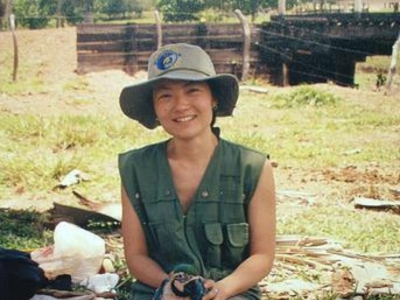
Dr. Cristina Yumi Miyaki is a world-renowned phylogeneticist and biogeographer of the neotropical avifauna, including parrots and endemic taxa of the Atlantic Forest region of Brazil. Her body of research is based on molecular genetics and evolutionary analysis of several avian lineages. She is also a broad-scale collaborator on large themes on psittacine evolution, cognition, and conservation genetics. She is a frequent presenter at international conferences and has published more than 140 papers, including those on birds in Nature Communications, Current Biology, Proceedings B, and Molecular Ecology. Dr. Miyaki has supervised 17 master’s degree students and 12 Ph.D. students and co-supervised two master’s degree students and two Ph.D. students. She was elected as an Honorary Fellow of the American Ornithologists’ Union (now AOS) in 2005 and was subsequently elected as an Elective Member (2015) and Fellow (2019) of the Society. Dr. Miyaki has also served on the AOS Committee for the Nomination of Fellows and Elective Members. She is a corresponding member of the German Ornithologists Society, and a member of various working groups for the conservation of endangered species for the Brazilian government, a member of the Conservation Genetics Specialist Group for the International Union for Conservation of Nature (IUCN), and a focal point of contact for the Species Survival Commission of the Brazilian IUCN Committee.
Maren Vitousek, Ph.D., Associate Professor, Department of Ecology and Evolutionary Biology, Cornell University and Cornell Lab of Ornithology
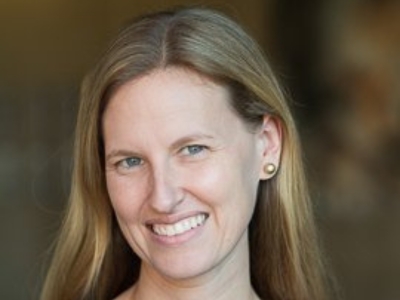
Dr. Maren Vitousek is a widely known avian endocrinologist whose integrative work spans behavioral, evolutionary, bioclimatic, physiological, epigenetic, and microbial questions. Working closely with students and postdocs, as well as collaborators beyond her home institution, Dr. Vitousek has worked both in an intensive and long-term local study of Tree Swallows and on several successful and productive continent-wide and thematic projects on avian ecophysiology. She has published more than 70 peer-reviewed articles, including in PNAS, Proceedings B, The American Naturalist, and Trends in Ecology and Evolution. Dr. Vitousek has been an AOS Elective Member since 2016 and an AOS Fellow since 2021.
Loye and Alden Miller Research Award
The Loye and Alden Miller Research Award is given annually for lifetime achievement in ornithological research; this year’s award is presented to Vicki Friesen.
Vicki Friesen, Ph.D., Professor, Department of Biology, Queen’s University
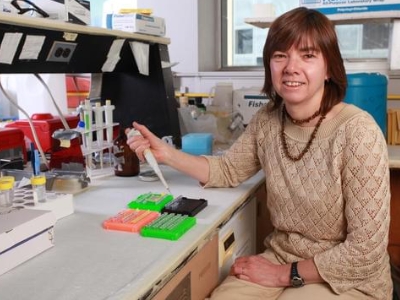
Dr. Vicki Friesen’s distinguished research career has mostly focused on the evolution and conservation genetics of seabirds. With students and colleagues, Dr. Friesen uses novel approaches to examine mechanisms of speciation and tackle complex conservation questions such as the potential for adaptation to rapid environmental change in Arctic seabirds. She is also using a variety of cutting-edge genetic techniques to understand individual and population-level variation in seabird behavior, disease resistance and breeding phenology. Dr. Friesen has published more than 130 peer-reviewed articles including in Nature, PNAS, Environmental Science & Technology, and Molecular Ecology, and is a recipient of the Doris Huestis Speirs Award from the Society of Canadian Ornithologists/Société des ornithologistes du Canada (SCO–SOC) for her outstanding lifetime contributions to Canadian ornithology. Dr. Friesen has been an AOS Elective Member since 2000 and an AOS Fellow since 2006.
Elliott Coues Award
The Elliott Coues Award recognizes outstanding and innovative contributions to ornithological research with no limitation to geographic area, sub-discipline(s) of ornithology, or the time course over which the work was done. The 2023 Elliott Coues Award is presented jointly to Gregory F. Ball and Jacques Balthazart.
Gregory F. Ball, Ph.D., Vice President for Research and Professor, Department of Psychology, University of Maryland
Jacques Balthazart, Ph.D., Director Emeritus, Behavioral Neurobiology Research Group, GIGA Neurosciences; University of Liège
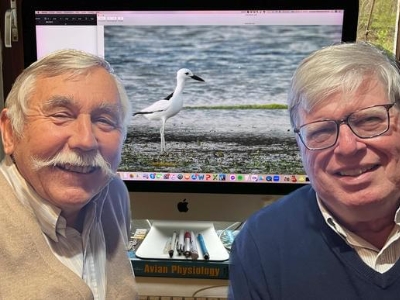
Drs. Gregory F. Ball and Jacques Balthazart have enjoyed a highly productive long-term collaboration since they published their first paper together in 1989. They are well known for their innovative work on avian endocrinology and neurobiology. This includes work on the steroid hormone regulation of sexual behavior in quail and seasonal neuroplasticity in songbirds. They have also investigated sex differences in the avian brain in relation to the control of courtship and other reproductive behaviors. Their basic work on the chemical neuroanatomy of the avian brain has contributed to revised views of avian and mammalian brain homologies. They have published more than 150 papers together among their 300 (Ball) and 500 (Balthazart) total research papers and have co-organized numerous symposia at the International Symposium on Avian Endocrinology meetings and the International Ornithological Congress. Dr. Ball and Dr. Balthazart have both served as president of the Society for Behavioral Neuroendocrinology, and both are Fellows of the American Association for the Advancement of Science (AAAS). Dr. Balthazart received the Farner Medal for distinguished work in Avian Endocrinology (2016) and has been an Honorary Fellow of the AOS since 1985. Dr. Ball has been an AOS Elective Member since 1992 and an AOS Fellow since 2005.
Early Professional Awards
The James G. Cooper Early Professional Award and the Ned K. Johnson Early Investigator Award are presented annually to recognize outstanding and promising work by researchers early in their careers. Our 2023 James G. Cooper Award winner is Glaucia Del-Rio. This year, the AOS awarded two Ned K. Johnson Awards, one to Carrie Branch and one to Sara Lipshutz.
James G. Cooper Early Professional Award
Glaucia Del-Rio, Ph.D., Edward W. Rose Postdoctoral Fellow, Cornell Laboratory of Ornithology
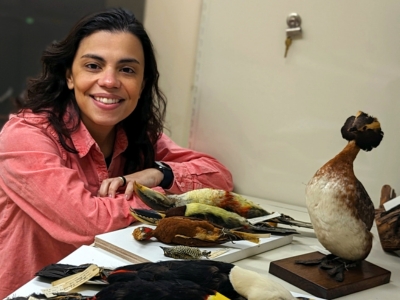
Dr. Glaucia Del-Rio currently works as a Rose Postdoctoral Fellow at the Cornell Lab of Ornithology and at the Simões-Costa Lab at the Harvard Medical School, investigating how postzygotic isolation mechanisms might contribute to the formation of the remarkable avian diversity in Amazonia. Upon completion of her postdoc, she will fulfill her dream and become the curator of birds and an assistant professor at the Florida Museum of Natural History, starting in January 2024. She was born in Parque São Lucas, in the outskirts of São Paulo, Brazil. As an undergraduate student at the University of São Paulo, she became an intern at the Museum of Zoology of University of São Paulo in 2008. In 2015, she left Brazil to pursue a Ph.D. at Louisiana State University, where she followed her greatest passion, speciation processes in Amazonian birds. Her research was a deep dive into the genomic mechanisms associated with reproductive barriers in the Rhegmatorhina hoffmannsi X R. berlepschi hybrid zone. To develop this project, she joined and led several expeditions to Amazonia to collect specimens and DNA samples for museum collections. This effort included the Emilie Snethlage Expedition, for which she gathered a team of nine women to sample a remote area in Amazonia and to raise awareness about gender disparity in field ornithology. Dr. Del-Rio will deliver a plenary address entitled “Insights into the speciation process from the most non-model organism ever” at the AOS & SCO–SOC 2023 Conference in London, Ontario, in August.
Ned K. Johnson Early Investigator Award
Carrie Branch, Ph.D., Assistant Professor, University of Western Ontario
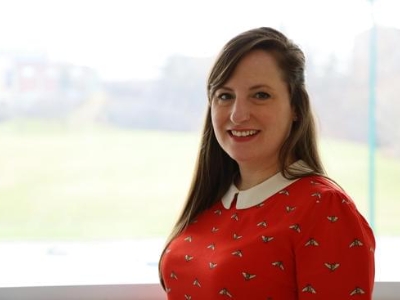
Dr. Carrie Branch is an assistant professor at the University of Western Ontario (Western University) who is interested in the evolution of communication and cognition in North American chickadees. After receiving her Ph.D. from the University of Nevada Reno (2018), Dr. Branch was awarded an Edward W. Rose Postdoctoral Fellowship at the Cornell Lab of Ornithology and received an inaugural AOS Kessel Research Fellowship in 2020 to support her work on spatial cognition and female mate choice in Mountain Chickadees. She has since served on selection committees for both the Kessel and Rose fellowships. In collaboration with talented scientists, Dr. Branch has made several important contributions to the field of ornithology and animal behavior, garnering interest from national and international news media, including Science Magazine, Living Bird Magazine, and BBC One. Most recently, Dr. Branch and colleagues have shown that natural selection acts on the spatial cognitive abilities of food-caching birds—a long-hypothesized assumption that has historically been difficult to show in the wild. Dr. Branch is a productive scientist, having published 40 articles in top journals in her field, including Ornithology, Current Biology, Proceedings B, and Animal Behaviour. She is also committed to mentoring students and has involved numerous undergraduate students in her research program (24 total), many of whom have received research grants (five to date) and earned authorship on publications (five to date). She is committed to creating an inclusive classroom and fostering curiosity in the courses she teaches, including Animal Behaviour and Animal Communication. Since beginning her tenure at Western University in July 2022, she has received two research awards, including a Natural Sciences and Engineering Research Council Discovery Grant and a grant from the Canada Foundation for Innovation to establish the Laboratory for Integrative Studies of Avian Communication at Western’s Advanced Facility for Avian Research. Dr. Branch was elected as an AOS Elective Member in 2020. Dr. Branch will deliver a plenary address entitled “Sexual selection, female choice, and cognitive adaptation in a food-caching bird” at the AOS & SCO–SOC 2023 Conference in London, Ontario, in August.
Sara Lipshutz, Ph.D., Assistant Professor, Loyola University Chicago; Research Associate, Life Sciences, Field Museum of Natural History
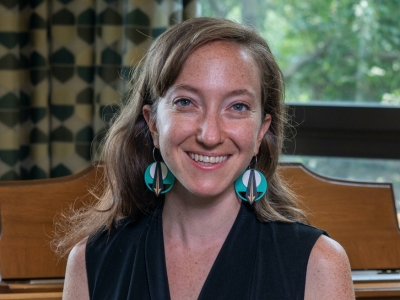
Dr. Sara Lipshutz studies the evolution of behavior across weird and wonderfully diverse species of birds, focusing on the causes and consequences of female competition. This work bridges “muddy boots” experimental fieldwork with a variety of molecular and computational approaches in genomics, neuroscience, and endocrinology. Dr. Lipshutz is currently an assistant professor at Loyola University Chicago, and previously was an NSF postdoctoral fellow in biology at Indiana University Bloomington and NSF graduate research fellow at the University of Tennessee, Knoxville, and Tulane University. She has been awarded the Mark E. Hauber Outstanding Talk on Animal Behavior Award and Neotropical Ornithology Student Presentation Award from the AOS and North American Ornithological Conference, respectively. In 2015, she was the recipient of the AOS Alexander Wetmore Memorial Student Research Award. Dr. Lipshutz will deliver a plenary address entitled “Fighting for fitness: integrating behavioral, hormonal, and genomic perspectives on the evolution of female competition” at the AOS & SCO–SOC 2023 Conference in London, Ontario, in August.
Service Awards
The AOS offers two awards, the Peter R. Stettenheim Service Award and the Marion Jenkinson Service Award, to recognize AOS members who have provided continued, exceptional service to ornithology and to the Society. This year, Scott Lanyon is the recipient of the Peter R. Stettenheim Service Award, and James Rivers is awarded the Marion Jenkinson Service Award.
Peter R. Stettenheim Service Award
Scott Lanyon, Ph.D., Vice Provost and Dean of Graduate Education, University of Minnesota
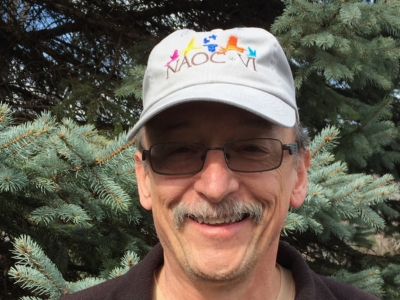
Dr. Scott Lanyon has a long history of sustained leadership in the American Ornithologists’ Union (AOU) as well as today in the AOS. He has provided exceptional leadership on numerous committees and on the AOS Council for more than 20 years. Notably, Dr. Lanyon served as AOU president during the merger with the Cooper Ornithological Society to form the AOS. In that role he worked to unify disparate views and established a transparent and collaborative tone within leadership, which served as a foundation for developing inclusivity within the society and relevancy to all ornithologists. Dr. Lanyon also played a pivotal leadership role in launching the AOS’s strategic planning efforts, helping to clarify and give direction to the society’s role in the broader world of professional and amateur ornithology. Today, Dr. Lanyon continues to be involved in strategic planning for the society, helping it move forward to meet the unique challenges and opportunities for ornithology in the 21st century. Dr. Lanyon has been a thoughtful and generous mentor for many early-career ornithologists, working to ensure that all feel welcome in the society. Dr. Lanyon was elected as an AOS Elective Member in 1986 and an AOS Fellow in 1992.
Marion Jenkinson Service Award
James Rivers, Ph.D., Assistant Professor of Wildlife Ecology, Forest Engineering, Resources & Management, Oregon State University
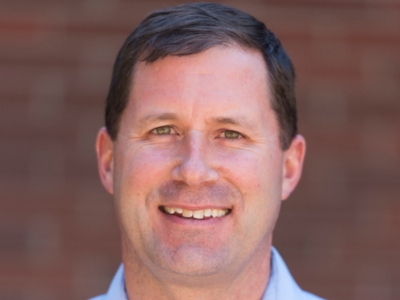
Dr. James Rivers has served on numerous AOS committees, starting when he was a graduate student. Most notable is Dr. Rivers’ leadership in student affairs, including serving as chair of the Student Affairs Committee shortly after its establishment. His leadership of this Committee led to improved services for students and early professionals, ensuring more impactful meetings (including initiating the very popular Quiz Bowl at our annual meetings), and expanding professional development. Dr. Rivers continued these efforts for several years as an active member of the Early Professionals Committee as well as while serving as an AOS Elective Councilor. In addition to being an enduring advocate for students and early professionals in our society, Dr. Rivers has contributed directly to several AOS conferences, has helped develop new awards to recognize significant contributions, and continues to serve as an associate editor for Ornithology. Dr. Rivers also received the 2012 Ned K. Johnson Early Investigator Award and was elected as an AOS Elective Member in 2007 and an AOS Fellow in 2015.
Conservation Awards
The AOS Conservation Awards honor individuals or groups who have made exceptional contributions to conservation through applied research, on-the-ground conservation efforts, education, or partnership building. The Ralph W. Schreiber Conservation Award was initiated in 2005 and the AOS expanded its conservation awards in 2023 with the introduction of the Conservation Practitioner Award. The addition of this new award allows us to recognize a broader range of critical conservation activities, from science to action.
Ralph W. Schreiber Conservation Award
The AOS Schreiber Award honors extraordinary conservation-related scientific contributions by an individual or small team. Contributions from throughout the world and over any time period are eligible for this award, including applied research, restoration, and educational actions that conserve birds or preserve significant bird habitats; scientific examination of the principles of avian conservation and application of new insights into species restoration; and scientific evaluation, guidance, creation, and oversight of avian recovery programs or habitat reserve and restoration programs. The award is named for Ralph Schreiber, a prominent figure in American ornithology known for his enthusiasm, energy, and dedication to research and conservation, particularly of seabirds. The AOS is awarding two Ralph W. Schreiber Awards in 2023, one to Lisa Sorenson and one to Stanley Senner.
Lisa Sorenson, Ph.D., Executive Director, BirdsCaribbean; Adjunct Associate Professor, Boston University
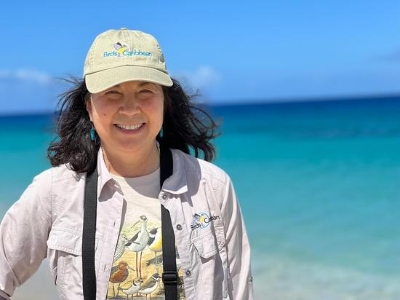
Dr. Lisa Sorenson has increased awareness, appreciation, and conservation of the Caribbean region’s unique avifauna through research, conservation, and public engagement programs for Caribbean island residents and beyond. Building from her Ph.D. research on the behavioral ecology of White-cheeked Pintails in the Bahamas, Lisa’s efforts over 35 years include capacity building; outreach and education; fostering an active network of Caribbean conservationists; and conveyance of conservation methods, community and youth education, and science to Caribbean audiences. Her leadership while vice president and president of the Society for Conservation and Study of Caribbean Birds (now BirdsCaribbean) from 2005–2012, and more recently as its executive director (2012–present), has inspired, motivated, and energized island residents and others to contribute to island conservation efforts. Dr. Sorenson has tremendous skill bringing people together from different island cultures, obtaining funding (>$3 million since 1997), and encouraging and mentoring many to become involved in bird conservation. Historically, much of the research on island birds was conducted by visitors from North America, often with little local involvement, thus limiting the opportunity for growth of indigenous conservation and capacity. Dr. Sorenson’s leadership has helped to overcome challenges in the region by addressing the need to train Caribbean nationals and empower local partners, teachers, and communities to carry out their own science, education, monitoring, and conservation. Since 1997, she has facilitated the delivery of more than 150 international and local training workshops, reaching more than 5,000 people. Dr. Sorenson has been a champion of increasing appreciation of the region’s endemic and migratory birds and the value of nature through the joy and fun of birding and bird education programs. This has, in turn, resulted in greater community engagement in actions to monitor, restore, and conserve threatened species and habitats, and it has yielded more young people pursuing careers in conservation. Dr. Sorenson has received five awards for her work in the region, including a Partners in Flight Leadership Award. She has also authored or co-authored numerous bird education resources, including school curricula and monitoring manuals for the region, as well as publications in peer-reviewed journals. The diverse Caribbean conservation initiatives, programs, and activities initiated, inspired, and facilitated by Dr. Sorenson’s leadership include the West Indian Whistling-Duck and Wetlands Conservation Project, BirdSleuth Caribbean, Caribbean Waterbird Census, Caribbean Birding Trail, Caribbean Endemic Bird Festival, Caribbean Seabird Conservation, and Caribbean Landbird Monitoring Network. Dr. Sorenson has been an AOS Elective Member since 1998 and an AOS Fellow since 2011. She helped organize the 2022 joint American Ornithological Society & BirdsCaribbean Conference in San Juan, Puerto Rico, serving on numerous committees.
Stanley Senner, M.S., Vice President for Bird Conservation (retired), National Audubon Society
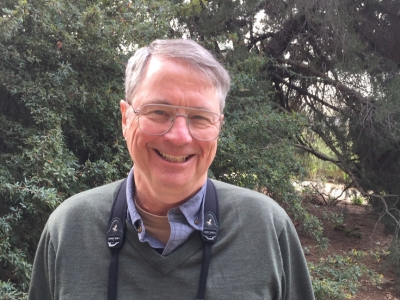
For the past 45 years, Mr. Stanley Senner has contributed his considerable expertise in avian ecology, environmental policy, and strategic conservation by leading flyway-wide initiatives to protect migratory bird populations. As the National Audubon Society’s vice president (VP) for bird conservation, Mr. Senner was tasked with working collaboratively with hundreds of conservationists, wildlife and land managers, and policy experts and has achieved notable conservation successes for migratory birds in several global flyways. He brings a unique perspective and diverse skill set to avian conservation gained from years of being at the forefront of conservation issues in the U.S. and internationally. Mr. Senner’s career has led him around the country as a leader for many other prominent conservation and governmental organizations, including as director of conservation sciences for Ocean Conservancy, VP and executive director of Audubon Alaska, science coordinator for the Exxon Valdez Oil Spill Trustee Council, restoration program manager for the Alaska Department of Fish and Game, executive director of the Hawk Mountain Sanctuary Association, professional staff member for the Committee on Merchant Marine and Fisheries in the U.S. House of Representatives, and Alaska representative for The Wilderness Society. His work has focused on science and public policy related to energy development and its impacts on wildlife and ecosystems, in particular migratory birds. Over the past decade, in his position as VP for conservation with National Audubon and after retiring from Audubon in June 2021, Mr. Senner has worked tirelessly to develop and advance the Pacific Shorebird Conservation Initiative and to bring attention to the importance and critical status of the saline wetlands and birds that inhabit the Great Basin. Through major efforts by Mr. Senner and others, these often-ignored ecosystems have recently come to the attention of Senate leaders Jeff Merkley (D-Oregon) and Mitt Romney (R-Utah), resulting in the first major conservation funding efforts for these habitats, efforts that should fortify migratory connectivity across the Pacific Flyway. Careful and discreet negotiations among stakeholders, agencies, and policymakers have been the signature approach to complex avian conservation issues that has made Mr. Senner so successful in achieving the major conservation goals he has tackled throughout his life. Mr. Senner graduated from the University of Alaska Fairbanks with a M.S. in biology in 1977, and he has been a member of the AOS since then. He was elected as an Elective Member in 1990 and an AOS Fellow in 2020 and currently serves on the AOS Conservation Committee. In 1993, he received the Pete Isleib Award for Contributions to Alaska Bird Conservation from the Alaska Bird Conference and, in 2019, the Allan Baker Lifetime Achievement Award in Shorebird Conservation from the Western Hemisphere Shorebird Group.
Conservation Practitioner Award (new in 2023)
The AOS introduced a Conservation Practitioner Award in 2023, which recognizes individuals or groups of biologists at any stage of their career for outstanding work in government agencies (from municipal, state, provincial, federal, or international levels) or nongovernmental organizations to further the conservation of birds. This award acknowledges the planning, on-the-ground, or day-to-day work of dedicated professionals addressing avian conservation issues at a local or regional scale. Jennie Duberstein is the winner of the inaugural AOS Conservation Practitioner Award.
Jennie Duberstein, Ph.D., Coordinator, Sonoran Joint Venture
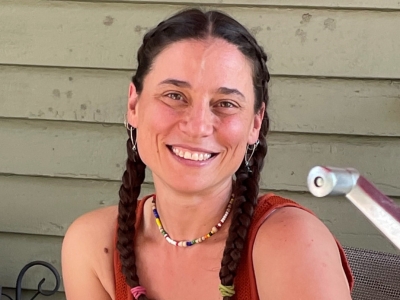
Dr. Jennie Duberstein is the Coordinator of the Sonoran Joint Venture, one of 25 Migratory Bird Joint Ventures (JVs) across North America and one of just two that span the U.S. and Mexico. As the Sonoran JV coordinator, Dr. Duberstein is responsible for partnership-building for birds and habitat conservation across the southwestern U.S. and northwestern Mexico. She has directed environmental education programs, developed community-based conservation projects in the U.S.–Mexico border region, developed and taught courses and workshops on bird identification, ecotourism, and bird monitoring, and studied species including Double-crested Cormorant and wading birds in Sonora and Yellow-billed Cuckoos in Arizona. Dr. Duberstein is a conservation social scientist who has been a leader in advancing equity, diversity, and inclusion in bird conservation. She is also very engaged in education and outreach and has been a long-time camp leader for fledgling young birders, directing field courses, summer camps, and conferences, and generally helping to connect young birders with opportunities and each other.
Publication Awards
Harry R. Painton Award
The AOS Harry R. Painton Award, given in odd-numbered years, is presented to the author of an outstanding paper published in the two preceding years in Ornithological Applications. The award was established in 1961, through a bequest from physician and eminent amateur ornithologist Harry Painton; a history of the Painton Award, including winners from 1961 to 1993, was published in The Condor in 1994. The 2023 Harry R. Painton Award recipient is Natália Stefanini Da Silveira for her paper, “Future climate change will impact the size and location of breeding and wintering areas of migratory thrushes in South America.” This year, the AOS additionally recognizes two individuals for honorable mention: Rachael W. Herman for her paper, “Age-structured model reveals prolonged immigration is key for colony establishment in Gentoo Penguins,” and Sarah Saunders for her paper, “Bridging the research-implementation gap in avian conservation with translational ecology.”
Natália Stefanini Da Silveira, Ph.D., Postdoc, Spatial Ecology and Conservation Lab (LEEC; UNESP-RC)
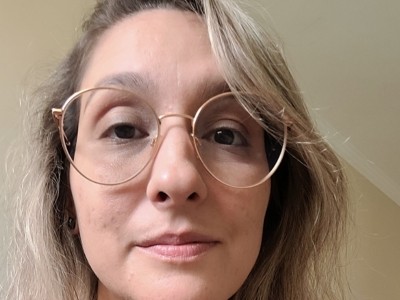
Dr. Natália Stefanini Da Silveira has a degree in biological sciences from the State University of São Paulo (UNESP), and a master’s degree and doctorate from the postgraduate program in zoology, Institute of Biosciences, UNESP, Rio Claro. In her postgraduate studies, she examined animal movement at different scales—focusing on birds—from regional movements to migrations and the impact of environmental changes on these systems. She is currently a postdoctoral candidate at the Spatial Ecology and Conservation Lab (LEEC; UNESP-RC), and works in partnership with Tropical Water Research Alliance (TWRA) on a project for sustainable development and biodiversity conservation in the Tocantins–Araguaia Hydrographic Basin. In their winning paper, “Future climate change will impact the size and location of breeding and wintering areas of migratory thrushes in South America,” Dr. Da Silveira and her coauthors examined the potential impact of future climate change on migratory thrushes in South America—a region rich in migrating birds whose movement patterns are not well understood. The authors explored how the distribution of breeding and wintering areas in three closely related species of thrushes with different migratory patterns (one short- and two long-distance migrants) change under future climate change scenarios. They predicted declines in the area of future breeding and wintering grounds along with elevational and longitudinal shifts in distribution. Their paper is the first of its kind to describe how climate change may affect migratory birds in South America, showing that impacts will differ depending on where species breed and overwinter.
Citation: Da Silveira, N. S., M. H. Vancine, A. E Jahn, M. A. Pizo, and T. Sobral-Souza, Future climate change will impact the size and location of breeding and wintering areas of migratory thrushes in South America, Ornithological Applications, Volume 123, Issue 2, 4 May 2021, duab006, https://doi.org/10.1093/ornithapp/duab006
Honorable Mentions (Harry R. Painton Award)
Rachael W. Herman, Ph.D. candidate, Stony Brook University; NASA FINESST Fellow
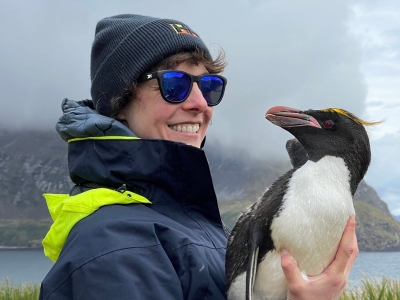
Ms. Rachael W. Herman is a Ph.D. candidate and NASA FINESST fellow in Dr. Heather Lynch’s lab in the Department of Ecology and Evolution at Stony Brook University. Her dissertation work focuses on population dynamics of Gentoo Penguins (Pygoscelis papua). Using a combination of remote-sensing assets, population modeling, and population genomics, she is investigating how Gentoo Penguins are both increasing in population numbers and expanding their range farther south along the Antarctic Peninsula, and what environmental factors are facilitating these dramatic changes. Ms. Herman has previously been awarded two AOS travel awards to present her research at the American Ornithological Society conferences in 2016 and 2022.
Citation: Herman, R. W., and H. J. Lynch, Age-structured model reveals prolonged immigration is key for colony establishment in Gentoo Penguins, Ornithological Applications, Volume 124, Issue 3, 2 August 2022, duac014, https://doi.org/10.1093/ornithapp/duac014
Sarah P. Saunders, Ph.D., Senior Manager of Quantitative Science, National Audubon Society
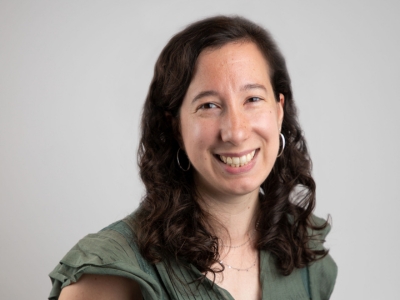
Dr. Sarah Saunders is a senior manager of quantitative science at the National Audubon Society and is based out of her home office in Grand Rapids, Michigan. Her work predominantly focuses on the Great Lakes region, where she models occupancy, abundance, and population dynamics of breeding marsh birds, waterbirds, and shorebirds. She also works with Audubon’s Climate Watch program data to model how species’ occupancy dynamics are shifting with climate change. Dr. Saunders specializes in integrated modeling, including combining different migration data types to estimate migratory connectivity for North American bird species. She has served as a judge for the AOS student presentation awards and now serves on the Student and Postdoc Travel and Presentation Awards Committee. Saunders served as an associate editor for Ornithological Applications from 2020–2023. She was elected as an AOS Elective Member in 2022.
Citation: Saunders, S. P., J. X. Wu, E. A. Gow, E. Adams, B. L. Bateman, T. Bayard, S. Beilke, A. A. Dayer, A. M. V. Fournier, K. Fox, P. Heglund, S. B. Lerman, N. L. Michel, E. H. Paxton, Ç. H. Şekercioğlu, M. A. Smith, W. Thogmartin, M. S. Woodrey, and C. van Riper, III. Bridging the research-implementation gap in avian conservation with translational ecology, Ornithological Applications, Volume 123, Issue 3, 1 August 2021, duab018, https://doi.org/10.1093/ornithapp/duab018
Florence Merriam Bailey Award
The Florence Merriam Bailey Award—named for the first woman “associate” of the American Ornithologists’ Union (AOU) in 1885, who was also the first woman elected as a Fellow of the AOU in 1929—recognizes an outstanding article published in Ornithology (odd-numbered years) or in Ornithological Applications (even-numbered years) by an early-career AOS member. The 2023 recipient of the Florence Merriam Bailey Award is Allison E. Huysman for her paper, “Strong migratory connectivity indicates Willets need subspecies-specific conservation strategies.”
Allison E. Huysman, M.S., Research Technician, Smithsonian Conservation Biology Institute’s Migratory Bird Center
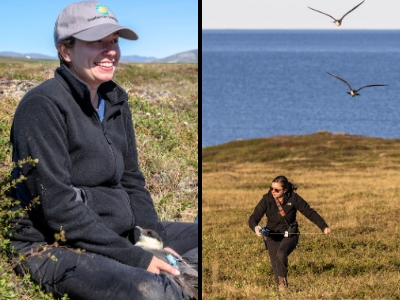
Ms. Allison E. Huysman earned her B.S. in natural resources and animal science from Cornell University and her M.S. in natural resources: wildlife from Cal Poly Humboldt. Her M.S. research focused on the potential for Barn Owls to provide rodent pest control in vineyards. Since finishing her M.S., she has worked at the Smithsonian Migratory Bird Center where she is contributing to research on migratory connectivity for North American birds.
In this winning paper, “Strong migratory connectivity indicates Willets need subspecies-specific conservation strategies,” Ms. Huysman and her coauthors quantified migratory connectivity between breeding and nonbreeding areas in Willets at both the range-wide and subspecies levels. They consolidated tracking and banding data and characterized breeding and wintering areas for western and eastern Willets. The authors found strong migratory connectivity between breeding and nonbreeding areas, allowing them to identify threats such as impacts from climate change and anthropogenic development in both subspecies and an additional threat from harvest in the eastern subspecies. The authors recommend that conservation efforts for Willets entail managing by subspecies and protecting a variety of breeding and nonbreeding habitats.
Citation: Huysman, A. E., N. W. Cooper, J. A. Smith, S. M. Haig, S. A. Heath, L. Johnson, E. Olson, K. Regan, J. K. Wilson, and P. P. Marra, Strong migratory connectivity indicates Willets need subspecies-specific conservation strategies, Ornithological Applications, Volume 124, Issue 3, 2 August 2022, duac015, https://doi.org/10.1093/ornithapp/duac015